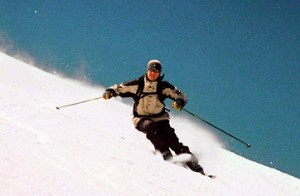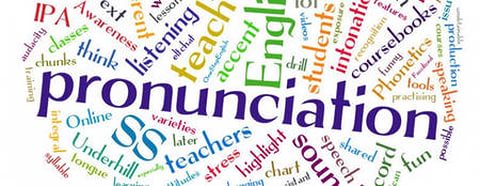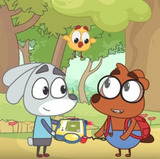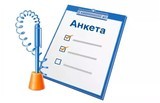HEALTHY LIFESTYLE
HEALTHY LIFESTYLE VOCABULARY WORD LIST
B) Balance, Behavior, Bending, Benefit, Bicycling, Body, Bones, Breathing
C) Calcium, Calisthenics, Calories, Care, Cereals, Challenges, Change, Choices,Circulation, Clean, Commitment, Communication, Competition, Conditioning,Contribution, Control, Cope, Cross-train, Cuisine, Culinary, Cure
D) Decisions, Dentist, Depression, Develop, Diet, Digestion, Dinner, Discipline,Doctor, Drinking
E) Eating, Education, Effect, Elder care, Emerging, Emotional, Endurance,Energy, Erect, Ergonomics, Establish, Exercise, Experience
F) Family, Fitness, Flexiblity, Framework, Freedom, Friends, Friendship, Fruit,Function
G) Gains, Genetics, Goals, Good Habits, Grains, Growth, Guidelines, Gym
H) Habit, Handle, Health, Healthy, Helpful, Herbs, Homemade, Humor,Hygiene, Hygienic
I) Image, Immunization, Impact, Improvement, Individual, Influence,Ingredients, Inherent, Innovation, Insurance, Integrity, Intensity,Interpretation, Intimacy, Investigate, Iron
J) Jazzercise, Jog, Judge, Jumping
K) Karate, Kinesics
L) Laughter, Learning, Lifestyle, Limits, Living, Longevity, Lose, Losing, Loss,Love, Lumbar
M) Maintenance, Management, Maneuver, Martial Arts, Massage, Masseur,Mat, Maximize, Measure, Medication, Medicine, Memory, Mental health,Metabolic, Method, Minerals, Minimize, Moisturize, Monitor, Mood, Motion,Motivate, Motivation, Movement, Muscles
N) Nutrient, Nutrition
O) Obstacle, Opportunity, Optimism, Options, Outstanding, Oxygen
P) Participate, Peers, Percentages, Performance, Perspiration, Pilates, Play,Popularity, Portions, Position, Positive, Posture, Power, Practice, Prenatal,Preserve, Prevent, Process, Professional, Program, Promising, Proportion,Protection, Psychology, Pulley
Q) Quadriceps, Quest, Quickness
R) Rebound, Recognition, Record, Recovery, Recreation, Reflex, Refresh,Regimen, Regulate, Rehabilitation, Relationships, Relaxation, Religion,Representative, Research, Resiliency, Resist, Respiration, Response,Responsibility, Restoration, Role, Rolfing, Routine
S) Safety, Sanitary, Sauna, Scenario, Scientific studies, Seasonings, Self-defense, Sex, Shape, Siblings, Signal, Simple steps, Size, Skin, Sleep, Soothe,Spa, Speed, Speed-walk, Spirit, Sports, Sportsmanship, Squat, Stability,Stamina, Staple, Statistics, Stimulate, Strategy, Strength, Strenuous, Stress,Stretching, Stride, Strong, Struggle, Suitability, Supination, Supplements,Support, Surgery, Swimming, Symptoms, System
T) Tackle, Team, Teammate, Teasing, Technique, Temptation, Test,Therapeutic, Therapy, Timing, Tone, Torso, Train, Training, Transformation,Treatment, Trends
U) Unrestricted, Unusual
V) Vaccination, Vault, Vegetables, Victory, Vigorous, Vital, Vitamins, Voluntary
W) Walking, Warm Up, Watchful, Water, Weigh, Weight, Weights, Welfare,Wellness, Whirlpool, Whole-grain, Win, Winning, Wisdom, Witness, Work,Work out
X) X-rays
Y) Yoga, Youth
Z) Zeal, Zest, Zinc, Zone
ABOUT FAST FOOD
Fast Food Business — Shocking Truth Behind It (video)
СОВЕРШЕНСТВУЙТЕ СВОЙ АНГЛИЙСКИЙ!
1. Популярный сайт по самостоятельному изучению английского языка — ЗДЕСЬ
2. Грамматика английского языка: ЗДЕСЬ
3. Проверьте свой уровень английского, потренируйтесь в тестировании: ЗДЕСЬ
ДЛЯ ЗАИНТЕРЕСОВАННЫХ, ПРОДВИНУТЫХ, ТАЛАНТЛИВЫХ…
1. Увеличивайте свой словарный запас с весёлым словарем: ЗДЕСЬ
2. Интересные факты об английском и на английском: ЗДЕСЬ
3. Изучайте английский для тинейджеров с Британским посольством (видео, рассказы, интересные факты, on-line игры и многое другое): ЗДЕСЬ
EVERYDAY PHRASES
BIG DEAL
This is a sarcastic expression to say that something (especially another person’s accomplishment) is not as important as it seems to be. Don’t use this expression in a professional context – it would be considered rude.
Situation: You and your friend are talking about a classmate who recently got a very high-paying job at a big company.
Your friend: Did you hear that Jeremy got the job at TechCorp? Apparently he’s making $200,000 a year.
You: Big deal. He only got that job because his uncle is vice-president of the company.
JUST MY LUCK!
“Just my luck!” is a sarcastic phrase that expresses especially unfortunate bad luck.
Situation: You have been single for a long time, and you really want to get married. You meet a beautiful, funny, intelligent, successful woman and you start to fall in love with her – but then you find out she is engaged.

You: Just my luck! I finally meet a woman I’m very attracted to, and it turns out she’s taken.
(“taken” = in a relationship with someone else)
NOW, WHERE WAS I? / NOW, WHERE WERE WE?
You can say this to get back on topic after a distraction or interruption. “Now, where was I?” is generally said when it is just one person talking (such as during a lecture or presentation). If it is two people who are talking or doing an activity together, you can say “Now, where were we?” After you say this, the other person can remind you about the topic of conversation before the interruption.
Situation: You’re helping your friend install a computer program, and you get a call on your cell phone. You answer the phone and talk for a few minutes. After finishing the call, you can’t remember what part of the installation you were doing before the distraction.
You: Now, where were we?
Your friend: We just installed the software, but we haven’t registered yet.
You: Oh, right. OK, you can click here to start the registration process.
NO NEED.
“No need” is simply a short way to say “it’s not necessary.”
Situation: You are planning a ski trip with some friends, and one person doesn’t have their own ski equipment.

Your friend: I’d love to go, but I don’t have any ski equipment
You: Oh, no need – you can rent the equipment at the ski lodge.
JOIN THE CLUB.
You can say this when another person says something that applies to you too. It is generally used for negative things.
Your friend: I’ve got so much work to do – I’m so stressed out.
You: Join the club.
(= I have a lot of work and am stressed out too.)
NO HARD FEELINGS
You can say this after someone apologizes to you, to express the fact that you won’t stay angry. This phrase is generally used after apologies for social conflicts that are more serious (or have the potential to be serious) – not small accidents like stepping on someone’s foot.
Situation: Your friend said something rude about you during a conversation with a group of people, and everyone laughed at you. At the time, you felt very embarrassed and angry at your friend. But later, your friend realizes that what he did was wrong, and comes to apologize.
Your friend: I’m really sorry. I shouldn’t have made that kind of remark about you, and I feel terrible about it.
You: That’s OK – no hard feelings.
IT’S A SMALL WORLD!
You can say “It’s a small world!” (or “What a small world!”) in reaction to an unexpected coincidence.
Situation: You are meeting a new colleague for the first time.
You: I heard you have a degree in physics. Where did you go to school?
Colleague: At Stanford University.
You: What a small world! I studied there too. What year did you graduate?
MAKE YOURSELF AT HOME
You can say this to welcome someone who comes to your home for a visit. It means they can sit down, get comfortable, and relax.
Situation: You invited your colleague and her husband over for dinner, and they arrive.
You: Hi! Please come on in – make yourselves at home.
Your colleague: Thank you! You have a lovely apartment.
GOOD CALL
When you respond to a statement with “good call,” you are saying that the other person made a good decision or a smart observation.
Situation: You and your friend are trying to decide whether to go to the mall or to the movies.
Your friend: Let’s go to the mall – they’re having a big sale this weekend. We can go to the movies anytime.
You: Good call.
I REST MY CASE
You can say this when you are expressing a fact or opinion, and then something happens to prove your point perfectly and show that you are completely correct.
Situation: You and your friend are talking about cooking.
You: You can’t cook at all.
Your friend: I can cook! I always make those instant noodle soups.
(the fact that instant noodle soups are meals for people who don’t really know how to cook, shows that your first statement about your friend’s lack of cooking abilities was correct)
1 Extremes meet — Крайности сходятся, противоположности притягиваются
2 East or West home is best — В гостях хорошо, а дома лучше
3 Better late than never — Лучше поздно, чем никогда
4 All’s well that ends well — Все хорошо, что хорошо кончается
5 Out of sight out of mind — С глаз долой, из сердца вон
6 As fit as a fiddle — В полном здравии, в хорошем настроении
7 No sweet without sweat — Не вкусив горького, не видать и сладкого
8 A penny saved is a penny gained — Не истратил пенни — значит, заработал
9 Have a heart! — Сжальтесь!, помилосердствуйте!
10 A good beginning makes a good ending — Хорошее начало полдела откачало
11 Too good to be true — Невероятно, не может быть / не верится, что это правда
12 New lords new laws — Новая метла метёт по-новому….
13 Honesty is the best policy — Честность — лучшая политика
14 A light purse is a heavy curse — Хуже всех бед, когда денег нет
15 It’s like putting a saddle on a cow — Идёт как корове седло
16 An eye for an eye and a tooth for a tooth — Око за око, зуб за зуб
17 I dare swear — Осмелюсь поклясться
18 Look who’s talking! — Чья бы корова мычала, а твоя бы молчала!
19 There is no rose without а thorn — Не бывает розы без шипов
20 If there is a will, there is a way — Хотеть значит мочь
21 There is no place like home — В гостях хорошо, а дома лучше
22 There is no smoke without fire — Нет дыма без огня
23 Lovely weather for ducks! У природы нет плохой погоды!
24 There is a black sheep in every flock — Белая ворона
25 But … There is always but… — Но … Всегда существует какое-то, но…
26 There are spots even on the sun — И на солнце есть пятна
27 While there is life, there is hope — Пока дышу – надеюсь
28 There is no flying from fate — От судьбы не уйдёшь
29 There is a small choice in rotten apples — На безрыбье и рак рыба
30 There is no so faithful friend, as a good book — Нет лучше друга, чем книга
SPEECH SHADOWING — ВЕСЕЛЫЙ И ЭФФЕКТИВНЫЙ СПОСОБ ВЫУЧИТЬ АНГЛИЙСКИЙ
Вы когда-нибудь хотели стать актером? Даже если и нет (что вряд ли), вы получите массу удовольствия, используя описанный ниже способ изучения иностранного языка. Методику эту я подсмотрела на личном сайте моего приятеля, хобби которого – изучение иностранных языков. У него получается неплохо, осваивает по паре языков в год… так, почему бы и вам не попробовать?
Как это работает? Невероятно просто. Опишу метод, как путь из 3 шагов.

ШАГ ПЕРВЫЙ – ВЫБЕРИТЕ РОЛИК
ШАГ ВТОРОЙ — ПРОСЛУШАЙТЕ ВЕСЬ ТЕКСТ ЦЕЛИКОМ
ШАГ ТРЕТИЙ — ПОРАБОТАЙТЕ «СУФЛЕРОМ»
Теперь начинайте снова слушать, что говорят актеры (дикторы) на записи, и пытайтесь подражать им. Что это значит? Повторяйте вслух каждое слово, произносимое на записи. Вы можете попробовать говорить синхронно с персонажем, а можете дождаться, когда он закончит фразу, остановить воспроизведение и повторить только что сказанное. Выбирайте удобный для вас способ, но мой приятель-полиглот рекомендует говорить текст вместе с актерами.
Не расстраивайтесь, если эта задачка покажется вам чересчур сложной. Это только кажется на первый взгляд. Через некоторое время у вас будет получаться намного лучше. Кроме того, если вы учите английский язык с нуля или ваш уровень еще не очень высок, то помимо этих занятий обязательно учите английский по учебникам или на курсах. Чем лучше ваш английский, тем проще вам правильно повторять текст вместе с артистами.
ПОЛЕЗНЫЕ СОВЕТЫ
- не стремитесь к идеальному произношению, просто веселитесь и хорошо проведите время;
- подражать всему, что делает актер — не только собственно словам, старайтесь повторить интонацию, тембр голоса, продолжительность пауз, всему, что слышите;
- занимайтесь с одной звукозаписью в течение нескольких дней, переходите к новому аудио только, когда вы почувствуете, что вы уже достаточно хорошо освоили предыдущую запись;
- поищите в интернете тексты к песням, записи которых вы найдете на YouTube , так вы сможете петь их вместе с исполнителем. Но имейте в виду, что порой в сети встречаются тексты песен с ошибками. Если видите, что слова, произносимые актером и написанные в сети, не совпадают, вам нужен другой текст;
- к вашим услугам каталог бесплатных аудиокниг LibriVox, а необходимые их тексты можно отыскать — на открытом проекте Gutenberg, поищите и другие источники учебных материалов ао английскому для начинающих, они есть на нашем сайте, на площадке Voxmate ли других знакомых вам интернет-ресурсов по изучению английского языка онлайн;
- используйте наушники, не стоит привлекать внимание окружающих;
- отличная идея выполнять эти упражнения во время прогулки, ходьба будет поддерживать ваше внимание, и вы узнаете больше.
Описанный метод Speech shadowing — простой, но мощный. С его помощью вы легко сможете улучшить свои навыки говорения на иностранном языке. Он повышает уверенность, улучшает произношение, и, кроме того, этот метод похож на игру, в которой вы осваиваете язык весело и почти подсознательно.
THE ENGLISH LANGUAGE (FORM 7)
Неистребима любовь к I am speak, I am drive и иже с ними. Ну да ладно, в этих случаях ничего страшного не случится, поймут так, как надо. Ошибка не критичная.
И совсем другая история с like. А все потому, что слово like — коварно и многоlikо. Like может вести себя как глагол, а может — как предлог. Такой уж он ветреный и непостоянный)) И смысл меняется соответственно.
I’m like my father – Я похож на отца
I like my father – Мне нравится мой отец
УПОТРЕБЛЕНИЕ LIKE
ГЛАГОЛ LIKE
Когда like используется как глагол, это может выглядеть так:

I like travelling.
He likes cats.
She likes him a lot.
I really liked maths at school.
Если like — главный, смысловой глагол, его можно (и нужно!) менять, как заблагорассудится. Добавлять -s (для he / she / it), -d (в прошедшем времени) и так далее.
И когда like употребляется в качестве глагола, он требует сатисфакции использования вспомогательных глаголов в вопросах и отрицаниях:
| Утверждение | Отрицание | Вопрос |
| I like travelling. | I don’t like travelling | Do you like travelling? |
| He likes cats. | He doesn’t like cats*. *Да он просто готовить их не умеет. |
Does he like cats? |
| She likes him a lot. | She doesn’t like him at all. | Why does/doesn’t she likehim? |
| I really liked maths at school. | I didn’t like maths at school. | What other subjects did youlike? |
LIKE КАК ПРЕДЛОГ
Когда мы используем like в качестве предлога, это может выглядеть так:

I’m not like you.
You are just like your dad – stubborn and bossy!
I studied like crazy for the exam.
I want to be like you.
Здесь like не выражает никакого действия, здесь он используется в качестве предлога — для сравнений:
| какой? | not like you | = не такой, как ты |
| какой? | like your dad | = как твой отец |
| как? | like crazy | = как умалишенный |
| каким? | like you | = как ты |
И разница между глаголом like и предлогом like:
| Глагол | Предлог |
| I like my father for his sense of humor. Мне нравится мой отец… |
Luckily, I am just like him. Я такой же/Я, как он. |
| I don’t like you. Ты мне не нравишься. |
I am not like you. Я не такой, как ты. |
| He likes cats. Ему нравятся котики. |
He is like a cat. Он как кот))) |
LOOK LIKE
Или вот:

You look like Paris Hilton.
А здесь — как вы думаете — like это глагол или предлог?
Глагол здесь — look. А like используется для сравнения. Выглядишь как кто?
...look like Paris Hilton — выглядишь как Пэрис Хилтон.
| Утверждение | Отрицание | Вопрос |
| You look like your father. | You don’t look like your father. | Who do you look like? |
И три вопроса со словом like, которые неизменно вызывают коллапс мозга путаницу:
| Вопрос | Ответ | |
| What is she like? (о характере) |
She is kind and generous. | |
| What does she like? (об интересах и предпочтениях) |
She likes travelling. | |
| What does she look like? (о внешности) |
She is quite tall. |
А еще like может быть словом-паразитом.
PHONETIC EXERCISES
Здесь собраны примеры фонетических разминок

1. I see a pen on the desk. I see a hen at the door. I see a clock on the bench. I see a cat on the floor.
2. One, two, three let me see Who likes coffee and who likes tea One, two, three now I see I like coffee, and you like tea.
3. The frog is green, green, green. And so is the tree. One, two, three Red, red, red the rose. Blue, blue, blue the dress. Grey, grey, grey the rat. And so is the cat.
4. One, one, one- Little dog, run! Two, two, two- Cats see you. Three, three, three- Birds on the tree. Four, four, four- Rats on the floor.
5. I have a hare, I have a bear. My toys are here, my toys are there. I have a horse, have a fox, I have a brown cow. I have a hen, I have a chick. And I am playing now.
6. Look at the boy – he has a toy Look at the doll – she has a doll. Look at the cat – it has a hat. Look at the pig – it is very big.
7. I have two eyes and I can see A book and a pen in front of me. I see a window and a door. I see the ceiling and the floor.
8. I have a little dog And his name is Jack. His head is white And his ears are black 9.
9. I like to read, I like to play, I like to study every day. I like to jump, I like to run, I like to play, Its fun. 10.
10. Your friend is his friend. His friend is her friend. Her friend is your friend. But who then is my friend? Your friends are our friends.
11. Звуки: [t,n,l] сочетания букв ght, ight, то есть почти все звуки и «на альвеолах», носовое «n» и «межзубные».
One,two,three, four, five,
Once I caught a fish alive,
Six, seven, eight, nine, ten,
Then I let it go again.
Why did you let it go?
Because it bit my finger so.
Which finger did it bite?
The litle finger on the right.
12. Звук [w]:
Why do you cry Willy?
Why do you cry?
Why Willy? Why Willy?
Why, Willy, why?
13. Звуки [s] и [межзубные]
A skunk sat on a stump and thunk — a stamp stank!
But a stump thunk — a skunk stank.
14. Звуки [s] и [sh]
She sells sea shells at the sea shore.
The shells she sells are surely sea shells.
So if she sells shells on the seashor,
I’m sure she sells seashor shells.
15. Межзубные — глухой и звонкий, дни недели
Monday for health
Tuesday for wealth
Wednesday the best day for all
Thursday for crosses
Friday for losses
Saturday not luck at all
16. Альвеолярные, «p, b, h, w»
See a pin and pick it up
All that day you will have luck
See a pin and let it lay
You’ll have bad luck all that day
17. «B, t,»
Betty Botta bought some butter,
But she said, the butter’s bitter.
If I put it in my batter,
It will make my batter bitter.
But a bit of better butter
Will make my batter better.
So she bought a bit of butter
Better than her bitter butter.
And she put it in her batter
And the batter was not bitter.
So t’was better Betty Botta
Bought a bit of better butter.




















































